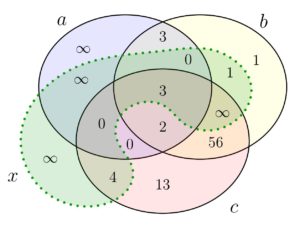This will be a talk for the CUNY Logic Workshop, April 28, 2:00-3:30 in room 6417 at the CUNY Graduate Center.
Abstract. Take any countable model of set theory $\langle M,\in^M\rangle\models\text{ZFC}$, whether well-founded or not, and consider the corresponding inclusion relation $\langle M,\newcommand\of{\subseteq}\of^M\rangle$. All such models, we prove, are isomorphic. Indeed, if $\langle M,\in^M\rangle$ is a countable model of set theory — a very weak theory suffices, including finite set theory, if one excludes the $\omega$-standard models with no infinite sets and the $\omega$-standard models with an amorphous set — then the corresponding inclusion reduct $\langle M,\of^M\rangle$ is an $\omega$-saturated model of the theory we have called set-theoretic mereology. Since this is a complete theory, it follows by the back-and-forth construction that all such countable saturated models are isomorphic. Thus, the inclusion relation $\langle M,\of^M\rangle$ knows essentially nothing about the theory of the set-theoretic structure $\langle M,\in^M\rangle$ from which it arose. Analogous results hold also for class theories such as Gödel-Bernays set theory and Kelley-Morse set theory.
This is joint work with Makoto Kikuchi, and our paper is available at
J. D. Hamkins and M. Kikuchi, The inclusion relations of the countable models of set theory are all isomorphic, manuscript under review.
Our previous work, upon which these results build, is available at:
J. D. Hamkins and M. Kikuchi, Set-theoretic mereology, Logic and Logical Philosophy, special issue “Mereology and beyond, part II”, vol. 25, iss. 3, pp. 1-24, 2016.

